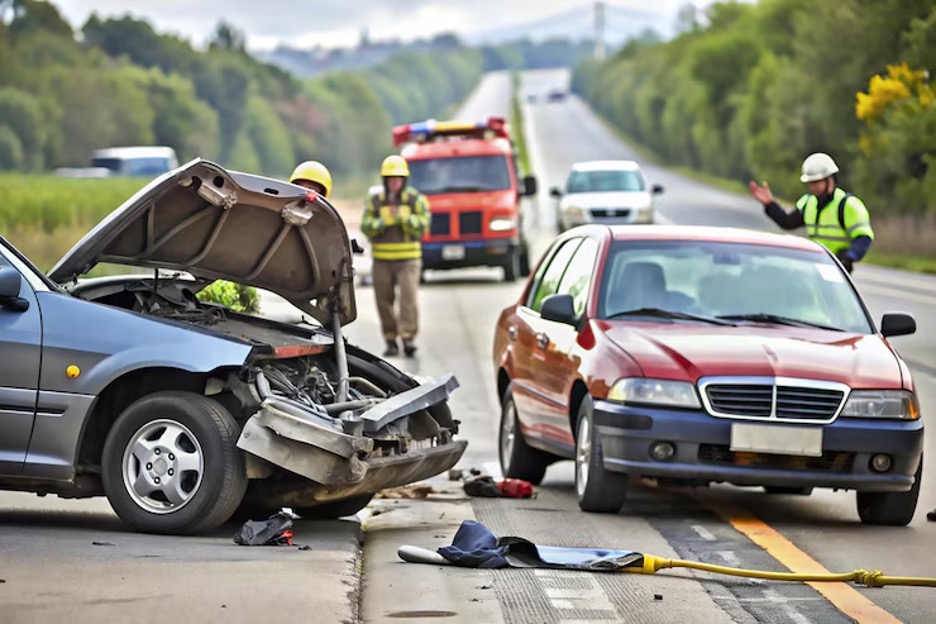Now Reading: Skid Marks and Legal Sparks: How a Lawyer Turns a Car Crash Into a Winning Case
-
01
Skid Marks and Legal Sparks: How a Lawyer Turns a Car Crash Into a Winning Case

Skid Marks and Legal Sparks: How a Lawyer Turns a Car Crash Into a Winning Case
Car accidents are an unfortunate reality of modern life, often leaving victims dealing with physical injuries, emotional trauma, and financial losses. For those caught in such circumstances, a skilled car accident lawyer can be the difference between a drawn-out ordeal and a successful resolution. This article explores the intricate steps lawyers take to transform the chaos of a car crash into a winning case, ensuring justice and compensation for their clients.
Understanding the Anatomy of a Car Crash Case
Initial Consultation: Setting the Foundation
The first step in any car accident case is the initial consultation between the victim and the lawyer. During this meeting, the attorney gathers critical details about the accident, including:
- Date, time, and location of the crash
- Involved parties and vehicles
- Police reports and witness statements
This foundational information allows the lawyer to assess the viability of the case and outline potential legal strategies.
Evidence Collection: Building a Strong Case
Once the case is accepted, the lawyer focuses on gathering evidence. This phase is crucial in establishing fault and proving the extent of damages. Key evidence includes:
- Photographs of the accident scene: Skid marks, vehicle damage, and road conditions.
- Medical records: Documentation of injuries and treatment.
- Surveillance footage: Video evidence from nearby cameras.
- Expert testimony: Insights from accident reconstruction specialists.
Determining Liability: Who Is at Fault?
Comparative Negligence and Legal Standards
In many jurisdictions, determining liability involves applying the principles of comparative negligence. This means:
- Fault is assigned as a percentage: One party might be 80% at fault while another is 20%.
- Compensation is adjusted: A plaintiff’s damages may be reduced based on their share of responsibility.
Lawyers must navigate these legal standards to ensure their clients are not unfairly burdened with blame.
The Role of Traffic Laws
Traffic laws play a pivotal role in car accident cases. Violations such as speeding, running red lights, or driving under the influence can heavily influence liability determinations. A lawyer’s ability to link the defendant’s actions to these violations often strengthens the case.
Calculating Damages: Beyond Medical Bills
Economic Damages
Economic damages cover tangible losses, such as:
- Medical expenses: Hospital bills, rehabilitation, and future medical care.
- Lost wages: Income lost due to missed work.
- Property damage: Costs for vehicle repairs or replacement.
Non-Economic Damages
Non-economic damages address intangible losses, including:
- Pain and suffering: Physical and emotional distress.
- Loss of enjoyment of life: Impact on daily activities and hobbies.
Lawyers work closely with clients and experts to quantify these damages accurately.
Litigation vs. Settlement: Choosing the Right Path
The Pros and Cons of Settling
Many car accident cases are resolved through settlements rather than trials. Settlements offer:
- Faster resolution: Avoiding lengthy court processes.
- Guaranteed outcomes: Eliminating the uncertainty of a jury verdict.
However, settlements may also involve compromises, as clients may receive less compensation than they would in a successful trial.
Preparing for Trial
When settlement negotiations fail, the case proceeds to trial. A seasoned lawyer’s trial preparation includes:
- Developing a compelling narrative: Presenting the client’s story in a way that resonates with the jury.
- Cross-examining witnesses: Challenging the credibility of opposing testimonies.
- Presenting evidence: Leveraging visuals, documents, and expert analyses.
The Role of Technology in Modern Car Accident Cases
Accident Reconstruction Software
Technology has revolutionized how lawyers present car accident cases. Accident reconstruction software allows attorneys to create 3D simulations of crashes, providing a clear and persuasive depiction of events.
Digital Evidence
With the proliferation of smartphones and dashcams, digital evidence has become a game-changer. Lawyers can:
- Access real-time recordings of accidents
- Analyze GPS data to verify locations and speeds
Choosing the Right Lawyer for Your Case
Key Qualities to Look For
Selecting the right lawyer is essential to a successful outcome. Key qualities include:
- Experience in car accident cases: Familiarity with local laws and court procedures.
- Strong communication skills: Keeping clients informed and comfortable.
- A proven track record: Demonstrated success in obtaining favorable settlements and verdicts.
Local Expertise Matters
Hiring a lawyer with local expertise can provide a significant advantage. For example, a New Iberia car accident lawyer understands the specific traffic patterns, road conditions, and legal nuances of the region, offering a tailored approach to each case.
Conclusion
Turning the chaos of a car crash into a winning legal case requires meticulous preparation, strategic thinking, and unwavering dedication. From gathering evidence to calculating damages and navigating the courtroom, a skilled lawyer serves as a steadfast advocate for their client. If you or someone you know has been involved in a car accident, consulting with an experienced attorney can ensure your rights are protected and justice is served.
Author:











